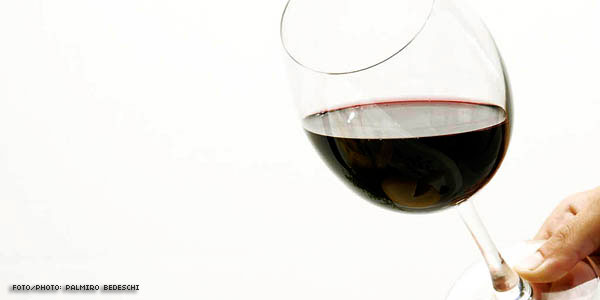Argentine Wines
THE LANGUAGE OF WINE

Wine has its particular language, quite sophisticated. Raymond Dumay in his book "Guide du Vin" (Wine Guide) quotes 97 words used to describe wine and he states that he has extracted several definitions from the "Vocabulaire" (Vocabulary) published by Camilla Rodier in her work "Le vin Bourgogne" (The wine from Burgundy).
Here are some of those definitions with their corresponding meanings:
![]()
![]()
Acidic: Very stressed acid taste.
Aroma: Pleasant smell. Its bouquet is the most refined expression.
Astringent: It "clutches" your gums. Loaded with tannin.
![]()
![]()
Balanced: It refers to wine with a frank, net taste, which elements form a perfect combination.
Body: Another very much used word. It refers to a wine with strength, substance, the opposite of a light, weak wine. It is a quality for red wine, but not usually for white wine.
Bouquet: Maybe the most used word. It refers to wine smell and taste at the same time. The most coveted quality in fine wines.
Breed: Of good breed, it refers to wines with a certain denomination that are kept during long years, even generations. With excellent qualities.
Brick color: Nice color for a rosé wine. For an old red wine, it means that it is losing its color and qualities.
![]()
![]()
Casse: Wine disease that makes it turbid. Ferric casse or cupric casse.
Cold: Introverted wine. Its aroma is not released.
Complete: Balanced. It presents a harmonic combination of qualities.
Common: Without a defined character. Nowadays, the term "table wine" is used to refer to common wine.
Cru: French word of international use. It refers to the soil where the vineyard grows, a sort of reduced space.
Cuvée: Another French word used all round the world. In its strict sense, it is the content of a vat, but it may also refer to the content of several vats that contain wine from the same year. In general, it refers to the best wine of "special cuvée" cellar.
![]()
![]()
Distinguished, elegant: Delicate, tasty.
Dry: Without sugar. For white wines, it’s a quality. This wine is pleasant, "it heats the tongue", and it excites the nervous system. Certain wines turn too dry during aging.
![]()
![]()
Fine: Wine originated from selected stock. It has delicacy, bouquet, taste and "grain" that clearly distinguish it from common wines.
Firm: It has body, nerve. It refers to a wine that has reached its perfect maturity. Quality for wine.
Fleshy: A wine with a certain consistency.
Fruity: The flavor of the grape, the bunch. Very much appreciated quality in white, rosé and new wines.
![]()
![]()
Generous: It qualifies certain aromatic wines. Apart from this specific meaning, it is used for those wines that cause a welfare sensation in the stomach.
Gouleyant: French word, very difficult to translate. It refers to wine that easily slides through the throat.
Grand: A grand wine, which possesses an irrefutable superiority over the rest of wines.
Grain: Particular sensation produced by certain wines. Constant Bourquin says that "a fine wine is recognized because it has grain". It seems as if the liquid contained something else than the liquid.
Green: Defect of wines that are too astringent, because they are made from underripe grapes. It means quality when applied to a new white wine containing a balanced proportion of acidity.
![]()
![]()
Hard: Unpleasant when it makes contact with the palate. It is not velvety at all.
Heavy: Thick, too dark.
Hot wine: Rich in alcohol. It causes dizziness.
![]()
![]()
Land (taste of the): Taste given by the composition of the area of land where the vineyard grows. Exceptional in Argentina.
Light: Little body, little color, good taste, a quality for white wines.
Limpid: Wine without particles that may make it turbid. A wine is limpid thanks to a long aging period.
Lively: Intensely impressing the pupils, having nerve.
Love: Not used in Argentina. Wine with a delicious bouquet.
![]()
![]()
Plush, velvety: Wine containing much glycerine and gummy matter. Causing pleasure as is passes by mucous membranes. It should not be mistaken for abboccato wines, which are artificially sugared.
Powerful: Much body and high alcohol.
![]()
![]()
Round: Full, fleshy, pleasant and soft.
![]()
![]()
Soft: It produces an impression of softness and harmony.
Sour: No comment required. Sour tasting wines resulting from grapes grown in soils saturated with salts, sodium chloride or magnesium chloride.
Strong: With high level of alcohol. It makes your throat and stomach hot.
![]()
![]()
Tartaric: Astringent, rough, hard to swallow.
Tasty: Pleasantly fruity.
Tender: Easy to drink, "gouleyant". The opposite of hard.
Thin: Without body, or strength. It sometimes maintains some bouquet.
![]()
![]()
Vinous, vinosity: Having strength, high level of alcohol, sometimes at the expense of refinement. In general, quality of good wine.
![]()
![]()
Wood: Taste given by too long aging in a wooden recipient or a badly cured cask.
![]()
© 2003-2024 Total or partial reproduction forbidden. Derechos de Autor 675246 Ley 11723
Who we are | Contact us | Press and Publicity | Terms and Conditions


